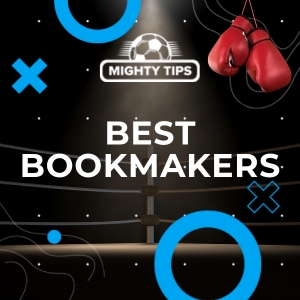https://www.pexels.com/photo/a-father-and-boy-watching-on-the-tv-6557551/
Sports betting isn’t just math on a spreadsheet. It’s late-kickoff nerves, a hunch about a striker, and that little voice that says, “Go on, back them.” Most of us like to think we’re rational when we stake money, but the truth is that fandom tags along. Your team wins, you feel vindicated; your team loses, you want it back on the next game. That push and pull between heart and head is what makes betting exciting and risky.
When the Heart Drowns Out the Head
You know the scene. It’s derby day, you’ve read the team news, you’ve checked the odds… and then you remember the last time your side pulled off a miracle. Suddenly, the underdog price looks irresistible. That’s emotion, and it doesn’t announce itself; it just nudges you toward the bet you wanted to make all along. Wins can feed overconfidence, like, “I’ve got the touch tonight”, while losses tempt you into chasing. Neither feeling is good at reading probability. They’re great at encouraging bigger stakes and weaker logic.’
That’s where disciplined platforms and transparent systems make a difference. As James Briscoe notes, online sports betting sites have evolved far beyond the old bookmaker model, offering users better tools to track odds, manage budgets, and make data-informed wagers. Many of today’s leading platforms balance convenience with control, giving punters access to real-time analytics, quick cashouts, and customizable limits that keep the experience fun without crossing the line. There are several resources that provide trusted insight into reputable sportsbooks that combine competitive odds, fast payouts, and generous promotions, making smart betting easier and safer than ever (source: https://www.cardplayer.com/betting).
How Bias Sneaks Into “Smart” Bets
Bias rarely shows up as a wild guess. It shows up dressed like reason. Confirmation bias has you hunting for a stat that supports the story in your head. Recency bias makes last weekend’s result feel more important than a season’s worth of form. The hot-hand fallacy tells you a player who scored twice will keep scoring, even if the matchup says otherwise. On the flip side, loyalty can create blind spots. You overlook injuries, travel, fixture congestion, anything that spoils the romance of your pick. The analysis looks thorough, but it’s built to justify the outcome you already want.
Fandom, Identity, and Why Risk Feels Different
Backing your team is more than a forecast; it’s a statement. You’re buying a little piece of the night. That’s why the stakes feel heavier. A neutral loss stings your wallet; a fan loss knocks your pride. Because identity is involved, the same odds feel different. A long shot on your club feels “worth a go,” while the same price on a mid-table stranger feels reckless. That shift changes how you define value. Instead of asking, “Is this price wrong?” you end up asking, “Wouldn’t it be great if…?” The first question is strategy; the second is wishful thinking.
Putting Guardrails on Emotion
You won’t remove emotion, and honestly, you wouldn’t want to. It’s part of the fun. What you can do is box it in. Start with simple rules you’ll keep even when you’re buzzing or tilted. Set a fixed stake size as a tiny percentage of your bankroll. Cap the number of bets per day. Decide, in advance, what makes a wager “qualify”, for example, a clear edge you can explain in one or two sentences. If you can’t explain it, you don’t place it.
Cool-off habits help too. After a gutting loss or a big win, step away until the next slate. Don’t let a cash-out button or a live-odds swing pull you into improvisation. If you love betting on your team, carve out a separate, small “fan fund” that you treat as entertainment money. That way, you still get the emotional ride without letting it leak into your main strategy.
Read the Game Like an Analyst, Feel It Like a Fan
The best balance is boring on paper and enjoyable in practice. Before you check prices, write down your neutral read: form, matchup quirks, injuries, schedule spots, and how the market has moved. Then look at the odds and ask one question, “Where is the value, if any?” If the answer is “nowhere,” pass. Passes are invisible wins. Keep short notes after each card: what you bet, why you bet it, the pre-game price, the closing price, and whether you’d make the same play again. Over time, you’ll spot patterns, including the emotional ones. Maybe you’re weakest on your own team. Maybe you overrate home-field in bad weather. You can’t fix what you don’t see.
Conclusion
Emotion will always sit beside you when you bet on sport. That’s not a flaw, it’s why you care. The trick is keeping it in the passenger seat while strategy drives. Set rules before the rush hits, separate fan bets from serious ones, take notes, and pass more often than you think you should. Do that, and you’ll enjoy the highs without letting them rewrite your plan, and ride out the lows without throwing good money after bad. The heart can cheer. The head decides.



